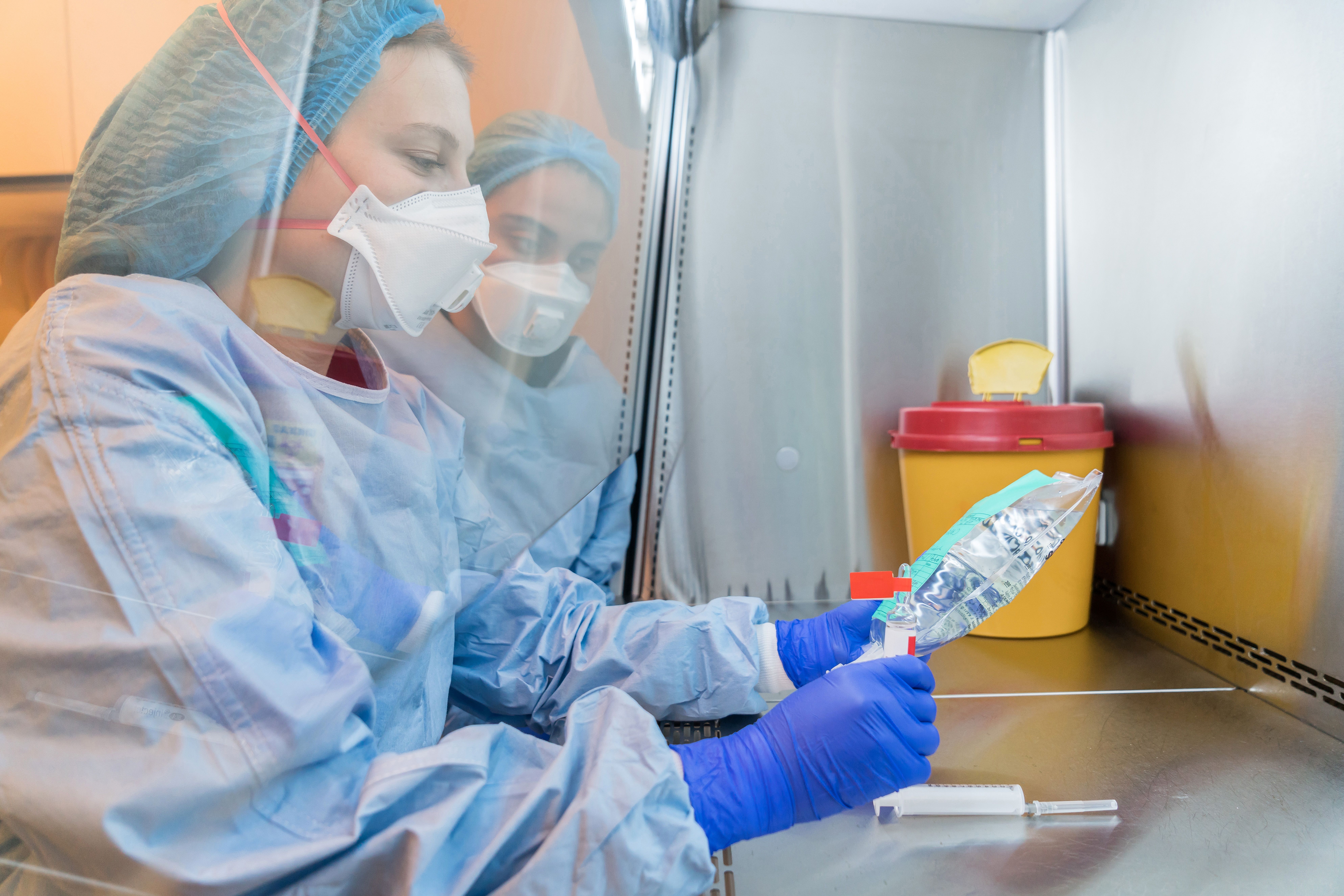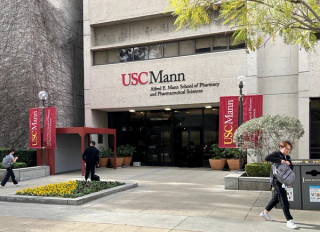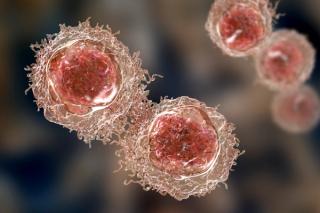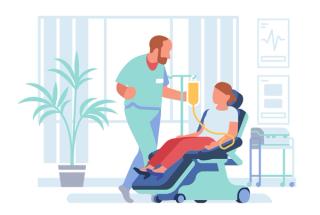
Immuno-oncology
Latest News


New Data Suggest Low Risk in Hamster Ovary-Derived Therapies For Alpha-Gal Syndrome
Latest Videos

CME Content
More News

The approval was based on positive efficacy and safety indications from the IMforte clinical trial of patients with extensive-stage small cell lung cancer (SCLC).
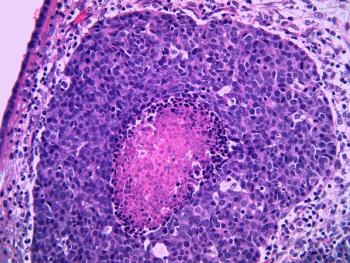
Enfortumab vedotin is one of many effective antibody-drug conjugates on the market that can be utilized to improve the treatment of urothelial carcinoma.
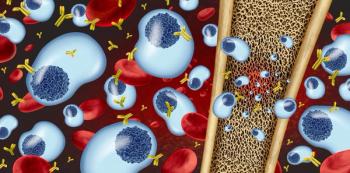
Discover the latest advancements in multiple myeloma treatment, including new therapies and FDA approvals that enhance patient outcomes and survival rates.
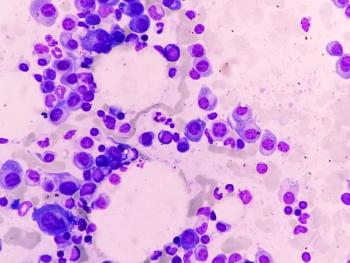
The treatment becomes the first approved BCMAxCD3 bispecific antibody with the potential to achieve biweekly or monthly dosing in patients with relapsed/refractory multiple myeloma.

FDA removes REMS for CAR T-cell therapies, enhancing patient access while ensuring safety in cancer treatment.
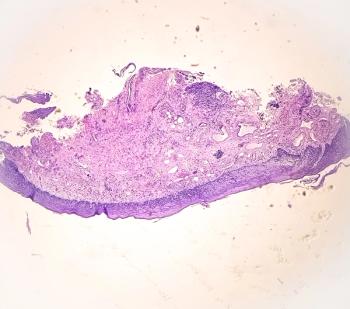
Jaume Capdevila, MD, PhD, discusses phase 1 data showing promising efficacy and manageable safety for obrixtamig in patients with high DLL3-expressing extrapulmonary neuroendocrine carcinomas, along with ongoing trials evaluating its use in both monotherapy and combination settings.
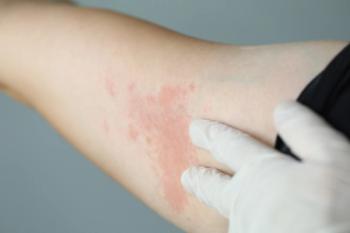
Cynthia Ryan, PharmD, BCPS, discusses practical, evidence-based strategies for pharmacists to identify, prevent, and manage dermatologic toxicities associated with cancer therapies, emphasizing interdisciplinary collaboration, patient education, and proactive supportive care to improve adherence and outcomes.

A phase 2 trial showed that using ctDNA to guide adjuvant pembrolizumab therapy after surgery effectively cleared minimal residual disease and reduced recurrence in patients with resected mismatch repair-deficient (dMMR) solid tumors.

The combination yielded superior progression-free (PFS) survival compared with standard of care.

Effective management of immune checkpoint inhibitor-related toxicities requires early intervention, evolving guideline adherence, and multidisciplinary collaboration, with steroids remaining a key treatment.

PD-L1 immune checkpoint inhibitors are now standard for early-stage non-metastatic non-small cell lung cancer (NSCLC), with neoadjuvant, adjuvant, and perioperative strategies improving survival and outcomes.

Conference Co-Chair and American Association for Cancer Research (AACR) Past President Elaine R. Mardis, PhD, explains that the conference provides pharmacy professionals with insights into the application of large-scale cancer genomics studies to real-world therapeutic responses.

The administration of immunotherapy in adjuvant, neoadjuvant, and perioperative settings offers distinct benefits and challenges in resectable cancers, with recent clinical trials highlighting its potential to improve long-term outcomes and the need for further research into biomarkers and combination strategies.

The FDA’s accelerated approval of lifileucel (Amtagvi; Iovance Biotherapeutics) marks a major milestone in immunotherapy for metastatic melanoma, building on decades of research in tumor-infiltrating lymphocyte therapy.
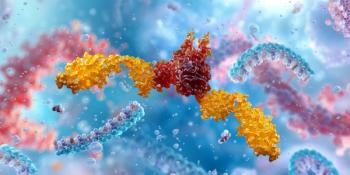
James P. Allison and the Discovery of CTLA-4: How Immune Checkpoint Blockade Revolutionized Oncology
Immunotherapy pioneer James P. Allison, PhD, revolutionized cancer treatment by discovering immune checkpoint blockade, leading to significant advances in survival rates and ongoing efforts to optimize immuno-oncology strategies.

Advancements in neoantigen vaccines and immunotherapy are transforming cancer treatment by leveraging genomic sequencing to overcome tumor heterogeneity and therapeutic resistance.

The AACR Immunotherapy Conference 2025 will provide pharmacists with the opportunity to engage with cutting-edge cancer immunotherapy research, explore advancements in treatments, such as immune checkpoint inhibitors and CAR T-cell therapy, and connect with key leaders in the field.

J Ryan Shaw, PharmD, BCPS, BCOP, CPP, discusses the value of the ASTCT and CIBMTR Tandem Meeting 2025 as a platform for multidisciplinary collaboration, cutting-edge education, and advancing pharmacy practice in transplant and cellular therapy.
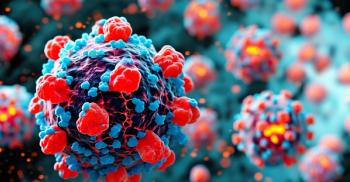
A ketogenic diet and its key metabolite, β-hydroxybutyrate, enhance the efficacy of CAR T-cell therapy by improving metabolic fitness, cytokine production, and cellular expansion, offering a promising, safe strategy for optimizing cancer immunotherapy.
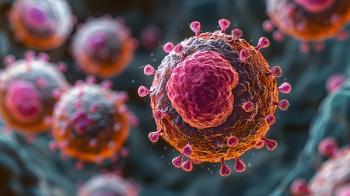
Compared with brentuximab vedotin and chemotherapy, nivolumab and chemotherapy had longer progression-free survival and a better safety profile.
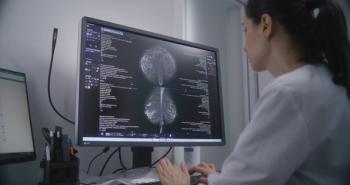
The KEYNOTE-756 and CheckMate 7FL trials show this combination improves pathological complete response rates in this patient population.

Advanced cell therapies are now saving the lives of people whose blood cancer would previously have been incurable. While the UK was quick to recognize the potential of these innovative therapies, patient access to these therapies may change without continued investment in the UK's cell therapy infrastructure.

Poorer prognosis was linked to factors such as reduced hemoglobin levels and advanced stage at diagnosis.

Pembrolizumab is an anti-programmed death receptor 1 (PD-1) therapy designed to increase the immune system’s ability to detect and fight tumor cells.

Overall survival results from the phase 3 KEYNOTE-522 study provide evidence of improved long-term outcomes from this pembrolizumab-based regimen.


